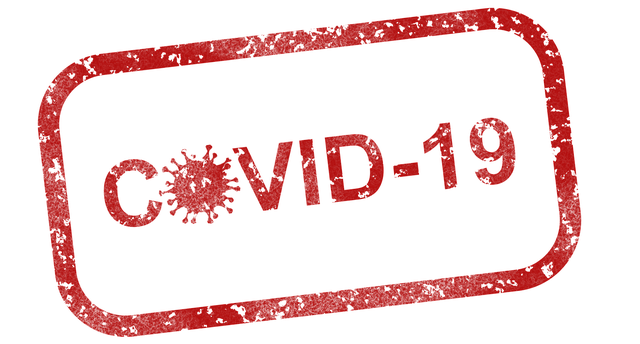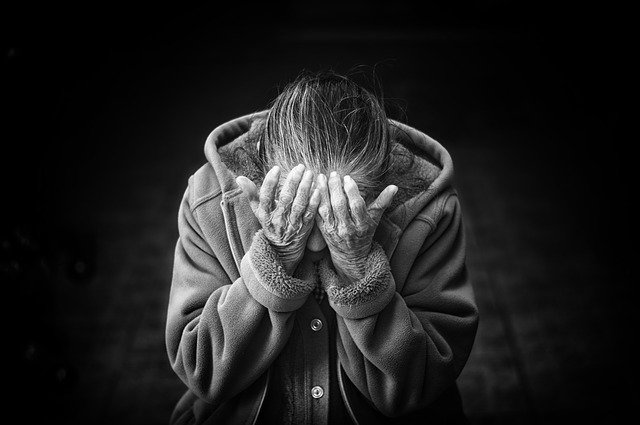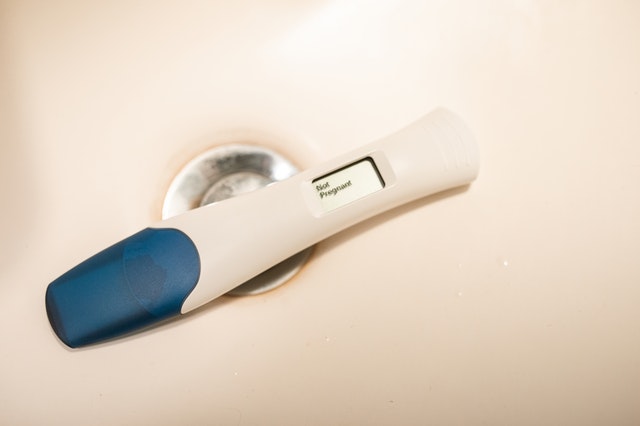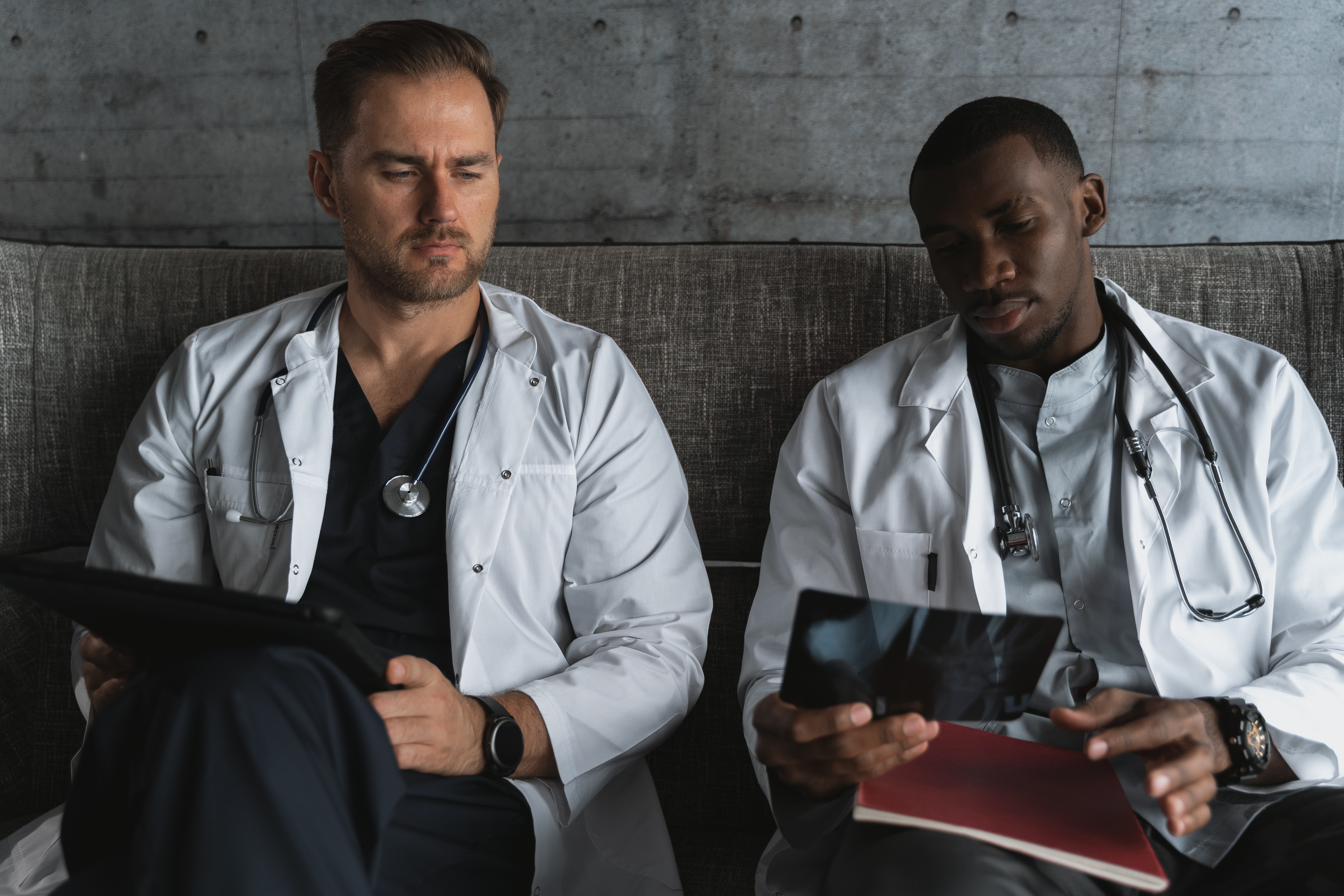Guest column by Aharon Hertzberg
The purpose of this essay is to show how someone can write an article that appears to be, and feels like, an even and balanced depiction of an issue while in reality being full-on gaslighting propaganda. Therefore, I am not trying to prove my factual assertions here, as it would double or triple the length and distract from what I’m trying to illustrate; and even if I am dead wrong factually, it is still aptly illustrated, for the reader can see the tactics and methods by which one can subtly distort facts and arguments. The following article was published by MSN:
“Can ivermectin be used to treat COVID-19? What you should know”
Early on in the pandemic, doctors desperate for an answer for COVID-19 began reviewing whether any drugs already available could be used as an effective treatment. Ivermectin, an anti-parasitic, was administered to some patients across the globe with seemingly positive effects. However, some health officials have challenged the effectiveness of the drug to treat COVID-19, creating controversy in both the medical and political spheres.
On one side, there are doctors who say ivermectin can help end the pandemic if used globally. On the other are public health officials who have reviewed the data and say the drug’s effectiveness against COVID-19 isn’t conclusive.
This is an accurate and fair depiction of the basic contours of the Ivermectin debate.
Here’s everything you need to know about ivermectin and its use for COVID-19.
This implants I the mind of the reader that what follows is sufficiently comprehensive to understand all of the salient points and arguments relevant to Ivermectin. This sense of ‘broad comprehensiveness’ is further driven home by the length of this article, which implies comprehensiveness.
What is ivermectin?
Ivermectin is an anti-parasitic medicine “that works by altering cellular channels,” said Dr. Soumi Eachempati, CEO of Cleared4 and former professor of surgery and public health at Weill Cornell Medical College. The drug inhibits some viruses from infecting cells, thus preventing the virus from spreading. Ivermectin is usually given to treat parasitic infections like lice and Strongyloides, according to Eachempati.
Scientists at pharmaceuticals giant Merck discovered ivermectin in 1975 and began to use it to treat scabies, river blindness and other parasitic diseases carried by worms and lice starting in 1981. It’s on the World Health Organization’s list of essential medicines for a basic health care system. More than 250 million people take the drug across the globe each year, and it’s effective for animals as well.
Although they could have done a better job explaining the background, it is immaterial to understanding Ivermectin vis a vis covid, and doesn’t give any misleading impressions.
The drug is considered safe when taken in appropriate dosages.
This is a bit misleading, because there is a subtle implication that there is very little room between the normal dosing range and an unsafe dose, which is not true, as Ivermectin is safe even at very high doses.
Side effects for the ivermectin vary depending on whether it’s taken orally to treat intestinal infections or topically for skin infections. Oral tablets can cause drowsiness, nausea, vomiting and, in very rare cases, an increase in heart rate and seizures. Side effects for the topical ivermectin can include skin rash and irritation, while dry skin and stinging pain are severe and rare.
Ivermectin is safer than Tylenol, so ask yourself: If you saw this about Tylenol, would you think that this is a fair assessment of potential side effects? Does it convey an exaggerated sense of risk? Ivermectin is one of the safest drugs ever made, dispensed >4 billion times over the past 50 years or so. Also, the vast majority of Ivermectin side effects are specific to its interactions with either river blindness or parasitic worms, neither of which is relevant to covid.
Can ivermectin be used to treat COVID-19?
This is where things get complicated. Public health agencies, including the Federal Drug Administration, the National Institutes of Health and the World Health Organization, don’t suggest ivermectin’s use to treat COVID-19. They cite the lack of data from large, randomized trials confirming the drug’s effectiveness to treat the disease.
True in the sense that they said it. This, however, gaslights the reader into believing that these agencies are acting on the basis of their unbiased, expert judgement, which is emphatically delusional – these agencies are as political as any govt agency. Also, there are many RCT’s, that collectively cover well over 10,000 subjects, which is definitely enough to qualify as “large”. Furthermore, the author neglects to inform the reader that these same agencies approved other interventions, such as facemasks or Remdesivir, on the basis of far less data/studies, which proves that their excuse of “lack of large RCT’s” is baloney.
Doctors who cited multiple smaller studies and firsthand experience say otherwise.
Credit for acknowledging clinical (firsthand) experience. But this is still very misleading. Doctors are not citing only ‘smaller studies’, they are also citing large studies, some of which are RCT’s. This gives a distinct impression that there exist no robust studies in favor of Ivermectin at all, which is emphatically untrue.
They claim ivermectin does work to prevent people from developing symptoms from COVID-19 and can shorten recovery time for those already infected.
This is straight up lying by omission, because the author leaves out the most important claim – the massive reduction in mortality – which is the primary benefit and the one that is most strongly demonstrative of Ivermectin’s efficacy!! The fact that mortality reduction is mentioned later almost in passing does not excuse its absence here, where the reader’s first impression of the pro-Ivermectin arguments is formed.
What do the public health agencies say about ivermectin use for COVID-19 treatment?
The FDA said in March it hasn’t approved the use of ivermectin to treat COVID-19. It warned that large doses of the drug are “dangerous and can cause serious harm.” The agency also advised against human use of ivermectin produced for animals, such as cows and horses, as the doses aren’t the same and could contain ingredients intended only for animals.
All true – the FDA indeed made these claims (although the decision to not approve is preposterous).
There has been a growing number of people taking ivermectin for animals as word spread on social media about its possible use to cure COVID-19. This has resulted in some people calling state poison centers after taking the incorrect dosage since the medication is intended for animals.
This is a slanted depiction of the people who take horse Ivermectin. The reason people have done so is simply out of desperation when faced with doctor’s refusal to use it, and their pharmacy’s refusal to fill Ivermectin prescriptions, and government bans on it. This is not some wild conspiracy theory trafficked by crackpots.
In April, the FDA reaffirmed in a post on its website that ivermectin isn’t approved to treat COVID-19 nor has it been given emergency use authorization.
Factually true statement. However, constantly quoting the FDA and other health agencies as institutions possessing unimpeachable expertise is itself highly misleading, because it conveys to people that there is a legitimate expert opinion out there that legitimately holds that Ivermectin doesn’t work, which is profoundly wrong – there is no rational basis in fact or logic to doubt Ivermectin’s efficacy at this point, and there is considerable corruption within these highly political government health agencies.
The NIH said in February there was insufficient data to “recommend either for or against the use of ivermectin for the treatment of COVID-19.”
They said it. It is still a misleading presentation, however - i.e., an objective description of the facts is “The NIH lied in February when they said there was insufficient data etc.”
It did say lab tests found the drug stopped the reproduction of the SARS-CoV-2 virus that cause the disease. However, to be effective, the dosages would need to be “100-fold higher than those approved for use in humans.”
They did say that. This is very dishonest though. The claim about the dosage requirement is sheer scientific illiteracy. Not only does the author present this as an unchallenged scientific finding, he doesn’t ever cite the counter arguments (refutation) of the pro-Ivermectin doctors. He also fails to point out the obvious, which is that real-world observation of efficacy would completely disprove this, something that the average reader won’t think of by themselves. All in all, this claim gives a false impression that it is highly unlikely that Ivermectin could be used effectively based on the prior background clinical knowledge we have for Ivermectin.
While some clinical studies showed ivermectin to have no benefit, the NIH said others saw a lower mortality rate among patients. However, those studies were incomplete or had methodological limitations such as small sample sizes or patients receiving additional medicine along with ivermectin, according to the NIH.
The claim that some studies showed no benefit is false, because no legitimate studies found no benefit – there were a few corrupt, fraudulent studies that purported to show no benefit, which don’t count (these will be addressed later). This is like saying, “while some studies showed that the Earth is round, NASA said that others showed that the Earth is actually kind of flat”.
The claim that all the studies showing benefits suffered from “methodological limitations” that are implied to be disqualifying is likewise false. Furthermore, a sufficient number of low-power studies all finding the same results is itself powerful evidence of efficacy, because the odds of running 50 small studies that show the same thing are insignificant if it’s just a fluke.
The WHO said in March the current evidence on the use of ivermectin for treatment of COVID-19 was “inconclusive.”
The WHO said it. The WHO lied.
Who says ivermectin is a treatment, and what information do they have?
Ivermectin’s potential use as a COVID-19 therapeutic made headway last December during a Senate Homeland Security Committee meeting called Focus on Early Treatment of COVID-19. Dr. Pierre Kory, a pulmonary and critical care specialist, testified about the drug’s usage for treatment of the disease.
“Ivermectin is highly safe, widely available, and low cost,” Kory said in the Senate meeting. “We now have data from over 20 well-designed clinical studies, 10 of them randomized, controlled trials, with every study consistently reporting large magnitude and statistically significant benefits in decreasing transmission rates, shortening recovery times, decreasing hospitalizations, or large reductions in deaths. These data show that ivermectin is effectively a ‘miracle drug’ against COVID-19.”
During his testimony, Kory referred to a paper he authored — Review of the Emerging Evidence Demonstrating the Efficacy of Ivermectin in the Prophylaxis and Treatment of COVID-19 — that was published in the May edition of the American Journal of Therapeutics.
True! And I would add, ask yourself: does this sound remotely like how the author of this article presented the general case for Ivermectin earlier??
However, the author again left out the most compelling argument made, which in this case is that Dr. Kory himself had successfully treated thousands of Covid patients with Ivermectin. The clinical experience of a doctor using a treatment repeatedly on thousands of patients is far stronger evidence than any trial, for sure during a crisis. It is obvious to anyone with a brain that “Dr. Kory testified that he had used Ivermectin to successfully treat thousands of covid patients” resonates powerfully to the reader in a way that no ‘study’ ever can.
The paper was also included in the Frontiers of Pharmacology journal in January but was then removed in March.
They folded under immense political pressure, which is misleading by omission of the possibility that its retraction may have been the result of political influence.
Dr. Frederick Fenter, chief executive editor of the journal, said the paper was removed due to “strong, unsupported claims based on studies with insufficient statistical significance, and at times, without the use of control groups.”
Every element of Dr. Fenter’s statement is a bold, audacious lie.
Fenter also said the authors promoted their own specific ivermectin-based treatment, which goes against editorial policies.
Selective application of a standard which they didn’t actually run afoul of.
A study listed in Kory’s paper gave ivermectin to 234 uninfected health care workers in Argentina and found those who received the drug were far less likely to be diagnosed with COVID. For mildly ill patients, an Iraq study saw a quicker recovery time. A trial for 400 hospitalized patients in Egypt showed a decrease in mortality in one group that received the drug along with standard care in comparison to a group with the same care that was given hydroxychloroquine.
This is cherry picking that also avoids spelling out the clear results of the quoted studies. He could’ve cited, for example, this Argentina study, which gives a far more powerful impression of efficacy:
Carvallo et al, RCT Prophylaxis, 1195 health care workers (HCW’s), 2 groups, 788 given 1x/week prophylaxis, control of 407 HCW’s. Results: 237/407 (58.2%) lab-confirmed covid infections in control vs 0/788 – ZERO!! - in Ivermectin arm.
I wonder why he didn’t…
There are also studies that show otherwise. A clinical trial of 476 patients found ivermectin didn’t improve the recovery time in patients who had COVID-19. A review of 10 random clinical trials, with more than 1,000 participants, also didn’t find improvements with ivermectin.
Both of these studies are, literally, fraudulent junk science. The first one, Medina-Lopez, suffered from issues such as the control arm also taking Ivermectin(!!!), among other significant failings; the second, the Roman et al meta-analysis of Ivermectin RCT’s, suffered from issues such as falsely reporting results from some of the studies in a way that SWAPPED THEIR RESULTS from showing efficacy to doing worse than the control, as well as arbitrarily excluding all the RCT’s that had they included, they would have been forced to conclude that Ivermectin was, indeed, effective.
Furthermore, there are 2 recently published meta-analyses of Ivermectin RCT’s using the highest statistical standard (Cochrane protocol), both by professional WHO expert consultants who specifically do these sorts of meta-analyses for all sorts of topics, that found that Ivermectin has a massive statistical impact by moderate quality evidence (which in layperson language means that it is a virtual lock that the effect is real, ‘moderate’ is a very technical term that refers to having specific types of evidence).
Merck, the company that discovered ivermectin, released a statement in February saying there was “no scientific basis for a potential therapeutic effect against COVID-19 from pre-clinical studies” and “no meaningful evidence for clinical activity or clinical efficacy in patients with COVID-19 disease.” It also cited a lack of safety data from major studies.
Merck lied. Merck also just signed a gov’t contract for a new anti-viral covid treatment drug they’re developing for $1.3 billion, which is an obvious conflict of interest relevant to their credibility to denounce a competing drug which if effective would mean there is no market at all for their expensive new anti-viral covid drug. The failure to acknowledge this by the author is at best indefensibly negligent. This gives the misleading impression of an authoritative source that has unique credibility to speak on the issue (because it’s their drug) saying that there’s no evidence that Ivermectin works.
Why is there controversy over ivermectin?
This question is inherently misleading, because anyone reading until now would intuit that of course there is a ‘controversy’ about a drug where according to one side, the other side are murderers, corrupt, and engaging in flat-put censorship. Such a question, especially after explaining the dispute, implies that it is not so clear why there would be a controversy at all, which in light of how they have portrayed Ivermectin so far is unambiguously pushing – however subtly - that Ivermectin really doesn’t have legitimate evidence backing it up.
The debate about ivermectin’s usage to treat COVID-19 has gone from the hospital to social media, exacerbating the discourse as well as the vitriol.
True.
While those in support of the drug appear to want an end to the pandemic, their arguments in favor of ivermectin have become fodder for anti-vaxxers and conspiracy theorists.
“Appear to want an end to the pandemic”??? Notice how the author will question the motives of the pro-Ivermectin doctors, despite them having no documented conflicts of interest, yet will not question the motives of health agencies and political doctors, despite the numerous and powerful conflicts of interest. This is subtle, but powerful, propaganda that gets the reader to associate the pro-Ivermectin doctors, but not the anti-Ivermectin health agencies, with nefarious motives (and conspiracy theorists, to whom a connection is alleged even though the author then says that it’s not the conscious objective of the pro-Ivermectin docs) without really realizing the manipulation inducing the reader to make this association.
Groups that have spread misinformation about COVID-19 throughout the pandemic latched onto ivermectin’s usage following Kory’s Senate testimony.
Notice also how the author doesn’t ever mention how government policies and claims have led to groups spreading misinformation about covid, such as there being no effective covid treatments as an alternate to getting a vaccine (and also such as that everyone is at significant risk from covid, facemask efficacy (which led to such cultish insanity like people wearing facemasks alone while driving), the 6-foot fairy tale, distorted vaccine risk/benefit analysis, ‘9% of US died from covid’, 50% of covid cases result in hospitalization, etc, etc, etc). Even if this is merely reflecting the prior assumptions of the author, the propaganda effect is just as real, as the reader is induced to associate only the pro-Ivermectin doctors with enabling crackpots and malicious people spreading lies, but not the government, who has been infinitely worse in this regard, as they have been the most aggressive purveyor of scientific quackery throughout the pandemic.
Anti-vax groups on Telegram share misinformation about the vaccine while asking where they can buy the drug. Rumble, an alternative video platform to YouTube, has pages of videos falsely saying vaccines are ineffective while advising people to also take ivermectin.
Anti-vax posts and videos can also be found on YouTube, Facebook and Twitter, although the companies are attempting to take these posts down or make them harder to find.
This is, at minimum, a clever bait and switch – the author is conflating in the reader’s mind the claim of ZERO vaccine efficacy (“ineffective” implies that it simply doesn’t work) with the claim of Ivermectin efficacy, which leads the reader to project – to some degree - the sense of obvious falseness of the zero-vaccine efficacy claim onto the claim of Ivermectin efficacy. This also propagandizes the reader to subtly project this sense of outright falseness onto all negative claims about the vaccines.
This is also shameless propaganda maligning alternative platforms to those controlled by “Big Tech” – in other words, those that aren’t engaging in rampant communist-style censorship – as the platforms of choice for the conspiracy quacks, while whitewashing the outrageous censorship of these platforms as an appropriate tactic to stop disinformation.
Kory was a guest on the Dark Horse Podcast hosted by Bret Weinstein, a former professor at Evergreen State College, on June 1 to talk about ivermectin. That video was eventually demonetized on YouTube and Weinstein’s channel received a strike, which prevented him from posting content for one week and could lead to its removal if he receives two more strikes within 90 days.
YouTube says its actions on Weinstein’s videos were part of its policies.
“While we welcome open discussions of potential treatments and clinical trials related to COVID-19 on YouTube, based on guidance from the CDC, FDA and other local health authorities, we don’t currently allow content that recommends ivermectin as an effective treatment or prevention method for the virus,” said Ivy Choi, a YouTube spokesperson. “We craft our policies to prevent the risk of egregious real-world harm, and update them as official guidance evolves. We do allow exceptions to our policy about ivermectin, including content that also gives viewers the full context of the FDA’s current position.”
Despite being a factually accurate depiction of YouTube’s claims regarding their own policies, this presents YouTube’s propaganda in a favorable light, which implies to the reader a presumptive degree of legitimacy that is emphatically divorced from reality – this is like citing Pravda in a way that makes Pravda look like a legitimate news source.
Because of YouTube’s decision, the controversy over ivermectin grew and became tied to what some claim to be “big tech censorship.”
“What some claim to be “big tech censorship””??? This is selectively disparaging the pro-Ivermectin side, as well as the government skeptics. Notice how the author never remarked the same way about the anti-Ivermectin proponents, such as “YouTube’s policies, what some claim are an attempt to combat misinformation”, etc.
In any event, the controversy over Ivermectin became tied to the controversy about censorship BECAUSE YOUTUBE, GOOGLE, FACEBOOK, ET AL CENSORED INFORMATION ABOUT IVERMECTIN, INCLUDING WORLD-RENOWNED DOCTORS AND SCIENTISTS!!!! This sentence is blatant gaslighting to obscure a simple, obvious, self-evident, objective fact.
What is required for ivermectin to get approved for COVID-19 treatment?
For the public health agencies, it’s going to come down to the results of large clinical studies being conducted around the world.
This refers to a few ongoing trials, all of which are designed corruptly in a manner almost guaranteed to undermine and sabotage the potential for Ivermectin to help (ie, comically low dosing, too few doses, using it on patients weeks after symptom presentation, etc). This also neglects to mention that this is an absurd standard to use. Facemasks, for example, had no evidence of efficacy when they were mandated by every health agency, despite the massive disruption and myriad harms they caused.
The WHO’s lead investigator tasked with reviewing the Ivermectin studies concluded in a massive Meta-Analysis study that it is demonstrably effective, with massive statistically significant effects established by moderate certainty evidence. The public health agencies are trying to destroy Ivermectin, something that this author is flipping on its head trying to imply that the health agencies are just trying to do their due diligence.
This author avoids every truly devastating argument the pro-Ivermectin doctors have against the anti-Ivermectin forces.
“In the UK, it was announced that ivermectin will be added to the Principle Trial, a large clinical study designed to assess potential COVID therapies for non-hospitalized therapies for patients at higher risk for severe disease,” said Dr. David Shafran, head of pediatrics at telehealth app K Health. “This should demonstrate more definitively the efficacy of ivermectin in early-stage COVID infections. Fingers crossed because it’s a cheap medication with a good safety profile. It would be great to add this to the armament of medication to fight COVID.”
The Oxford University Principle Trial has more than 5,000 participants and will give a three-day course of oral ivermectin treatment to individuals randomly and compare their results to individuals who will receive standard care.
The corrupt Oxford trial.
In the US, the NIH is evaluating therapeutics for COVID-19 with its Accelerating COVID-19 Therapeutic Interventions and Vaccines (ACTIV) master protocol. ivermectin was added in phase three of ACTIV-6, which will test the effectiveness of repurposed drugs.
“The ACTIV prioritization group, trial team and trial oversight groups continuously track new data on any agent we are studying in our trials and evaluate that data for how it might influence our testing of that agent and the safety/well being of the participants in the trial,” said Dr. Sarah Dunsmore, a program director at the National Center for Advancing Translational Sciences that is part of the NIH.
What’s unclear is how long the whole process will take. The studies need time to be completed, and then the agencies will require additional time to come up with decisions based on the data.
This whole section is propaganda suggesting that there simply isn’t any robust data supporting Ivermectin, which is about as credible as flat-Earth theories, as well as falsely implying to the reader that the medical community is making genuine, good-faith attempts to study Ivermectin.
As you saw, it is remarkably easy to masquerade and disguise propaganda in the language and tone of “fair and balanced”. This is exactly how gaslighting and propaganda work and why they’re so effective.
Guest columns represent the opinion of the column’s author. The author’s analysis of the quoted article are in red/italicized font.










